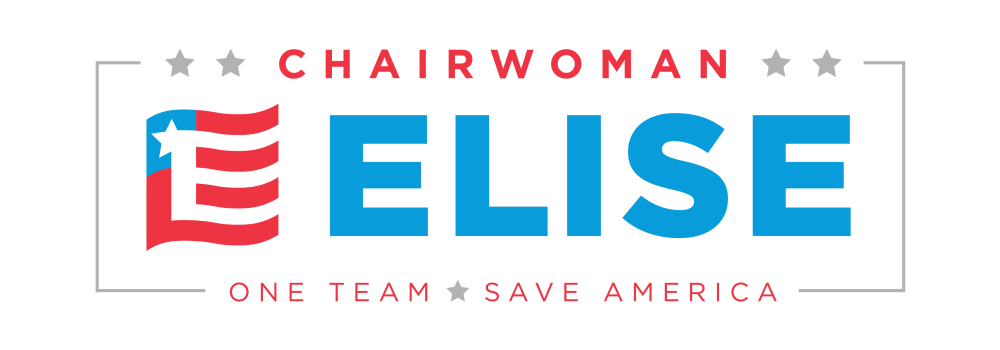Written by Cara Chapman in the Press-Republican on May 23, 2020
PLATTSBURGH — In a working group conference call hosted by Rep. Elise Stefanik Wednesday, leaders of North Country colleges and universities discussed the challenges they have faced during COVID-19.
Many also expressed their concerns over the possibility of significant cuts of up to 50 percent to their state aid.
Gov. Andrew Cuomo has said such cuts to colleges and other entities would be necessary if the federal government did not provide additional direct aid to New York State.
DEVASTATING
Cuts that would slash state funding by half would be devastating for Jefferson Community College, President Dr. Ty Stone said.
She noted that, in a region like the North Country, community colleges are an important part of the engine for economic stability and recovery as they provide training and re-training for workers.
Clinton Community College President Ray DiPasquale mentioned that the college’s other two funding sources, county funding and enrollment, also look like they will be lower for 2020-2021.
He added that CCC had already been experiencing enrollment challenges over the last few years.
“With additional cuts, we would certainly have to be looking at strong retrenchments in order to survive all of this.”
DiPasquale and Stone’s North Country Community College counterpart, Joe Keegan, said his institution ran the numbers for potential cuts.
If the max of 50 percent was implemented, “we couldn’t grow our way out with new students and we couldn’t cut our way out and be able to deliver the same programs for our students and the same workforce development programs that we have effectively,” he said.
“Any support would be much appreciated.”
Stefanik mentioned legislation that would establish the State and Municipal Assistance for Recovery and Transition (SMART) Fund, which she became an original cosponsor of early this week.
The fund would provide $500 billion in emergency funding to states, counties and communities nationwide.
NUMBER UNKNOWN
DiPasquale asked if colleges’ fourth-quarter payments from the state would be impacted by a possible budget freeze.
Assemblyman D. Billy Jones said his office is continuously checking with the Division of Budget regarding that question, and that he would have thought Cuomo and Budget Director Robert Mujica would have come out with numbers for cuts by May 15.
“But it appears the executive is kind of holding off more towards the end of the month to see about a possible stimulus package.”
He acknowledged the frustration and stress college leaders must be feeling.
“I honestly don’t believe (Division of Budget) or Mujica or the governor really know what they’re going to come out with with the number.”
CARES ACT FUNDING
SUNY Adirondack President Dr. Kris Duffy expressed gratitude for the Coronavirus Aid, Relief and Economic Security Act funding colleges were set to receive, half of which must go to students.
But, she noted, that her and other institutions had not been able to release those funds as they continued to await approval from the state Division of Budget.
SUNY Potsdam President Dr. Kristin Esterberg added that the remaining CARES Act funds intended for her organization will not even cover half of the loss of revenue experienced in recent months.
She said they would be grateful for any increase in funding through the SMART Act or other legislation.
DIGITAL DIVIDE
The digital divide among students is real, Duffy said, mentioning a student who would like to enroll at SUNY Adirondack, but does not have internet access.
“How will that student be able to keep up with his work?”
So far, only short-term solutions, such as hot spots in parking lots, have been implemented, Duffy said.
“That’s not really a long-term nor a productive way to learn.”
Stefanik said her office is working to hold the Federal Communications Commission accountable for its promises to ensure rural America is connected, as well as on bipartisan initiatives to make sure the mapping of broadband coverage reflects the reality on the ground.
She added that it was her understanding that federal funding for broadband development had been released and was being held up at the state level.
State Sen. Betty Little (R-Queensbury) reiterated her thoughts that broadband needs to be in every home, like electricity.
TESTING COSTS
DiPasquale expressed concern about the costs associated with testing — he had been told they would be $100 each — and said questions remain regarding who would administer the tests and how often they should be administered once campus reopens.
SUNY Plattsburgh President Dr. Alexander Enyedi noted that, in a call with his college’s Student Health and Counseling Center, he had learned about new testing coming out that would cost $25 per test, which was welcome news.
He added, though, that refunds to SUNY Plattsburgh students who did not end up staying on-campus in residence halls totaled $8 million, which would have gone toward supporting employment costs.
So far, no one at SUNY Plattsburgh has lost a position, Enyedi said.
FALL PLANS
Discussing their fall plans, some of the colleges shared that they were looking to implement hybrid models that would blend remote and in-person learning, and shift the semester so that students would begin in mid-August and head home at Thanksgiving to finish out the rest of the semester remotely.
That schedule change would serve to minimize student movement in and out of the area.
Enyedi said SUNY Plattsburgh has five working groups focused on fall 2020 planning.
“I just wanted to emphasize that the opening here on our campus is going to have primary consideration for the safety of our community, and the safety of our faculty, staff and certainly the students,” he added.
“We’re not going to be doing anything that will put this particular community at risk because we do not want to see a regression in terms of the opening of the North Country with respect to the phases that we’re currently undergoing right now.”
UNCERTAINTY
Keegan said the greatest word for the higher education institutions was uncertainty, pointing to unknowns with the state budget forecast, whether students will feel safe returning to school and how to navigate issues with residence halls and athletic teams.
He added that NCCC has allied health programs whose students need to have clinical rotations, so the question remained of how to effectively provide them the experience they need in the context of the COVID-19 crisis.
On a more positive note, DiPasquale noted that CCC and many other institutions graduated students last weekend, holding online ceremonies.
“As we ended the semester, we did a great sigh of relief that we were able to actually graduate our students, even though remote, and certainly end the semester on a very high note.”
Email Cara Chapman:
Twitter: @PPR_carachapman
You can read the full article at https://www.pressrepublican.com/





